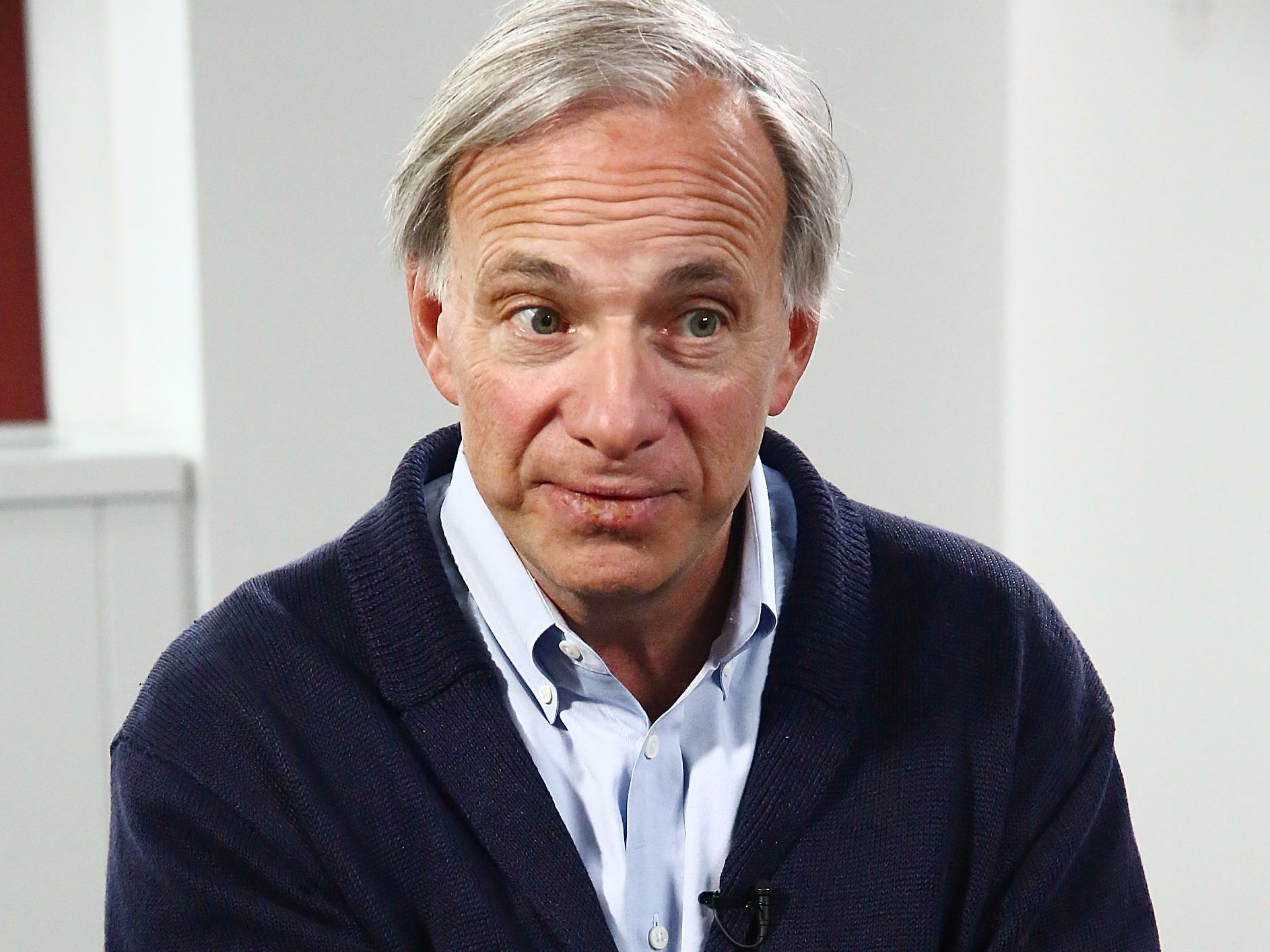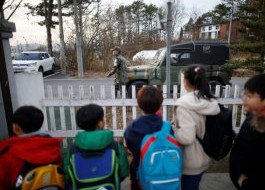
Ray Dalio is with Jamie Dimon.
Dimon, the JPMorgan CEO, said this week that while the US is "probably stronger than ever before," it is "clear that something is wrong."
And in an interview with Business Insider's global editor in chief Henry Blodget on The Bottom Line, Business Insider's new weekly business news show, Dalio, the founder of Bridgewater Associates, agreed.
"He's right," he told Blodget.
Dalio launched Bridgewater from his kitchen, and the firm is now the world's biggest hedge fund. He made $1.4 billion in 2016, according to Forbes.
Like Dimon, Dalio is focused on the education system. Dalio cited a study his wife funded in Connecticut that found 22% of students in the state are disengaged or disconnected. In his annual letter to shareholders, Dimon said "we are creating generations of citizens who will never have a chance."
"Now you think not only is that a human tragedy in terms of those kids, but that's also going to be a terrible social tragedy," Dalio told Henry Blodget. "When you look at some of the educational things that can be done that make such a world of difference to people, it's a terrible waste of resources and inefficiency. We have a problem with our human infrastructure."
Here's the full transcript:
Henry Blodget: Jamie Dimon earlier this week said, 'Look, there's a problem in this country, it's a great country, but there's a problem.'
Ray Dalio: He's right.
Henry Blodget: You agree with that?
Ray Dalio: Oh totally. I think it's very inefficient. In many parts of this country, we don't create a bottom. There's no bottom. In other words, there is no minimum level of acceptable education, there's no minimum level of acceptable circumstances in some places. There's a tragedy that we're losing, in many ways, our human infrastructure in lots of those places.
That's also a bad investment. My wife is very much involved in education in the worst parts of Connecticut. This is something that's particularly important to her. She funded a study that looked at the number of disengaged and disconnected youths. A disengaged youth in a high school is a student who comes in and doesn't participate. They go to class, they don't do their homework, they don't do anything. A disconnected youth is one that doesn't even know where they are, they don't come to school. She had this study done: 22% of the students in Connecticut are either disengaged or disconnected.
Now you think not only is that a human tragedy in terms of those kids, but that's also going to be a terrible social tragedy. What will they end up doing? How will it be? How does it make sense? When you look at some of the educational things that can be done that make such a world of difference to people, it's a terrible waste of resources and inefficiency. We have a problem with our human infrastructure that is a major problem.
Henry Blodget: Do you think that that is a different infrastructure to the one that allowed or helped you to do what you do?
Ray Dalio: Yes, I was lucky in the sense that I had parents who cared about me, I went to school, I was able to have that kind of infrastructure in this wonderful country that allowed me to have those kinds of opportunities and inspirations, you know, when you look at people, and they could do those things, so there was a dream that can happen.
There is a wonderful documentary movie called 'Waiting for Superman.' I don't know if you know the movie, OK, 'Waiting for Superman.' It tells the story of being in the inner city and having this aspiration of Superman, and then waiting for Superman, and there is no Superman, he doesn't come, there's no hope. You need hope. You need family. You need infrastructure. You need certain basic things that I had the benefit of having and a lot of the population doesn't have the benefit of having.




